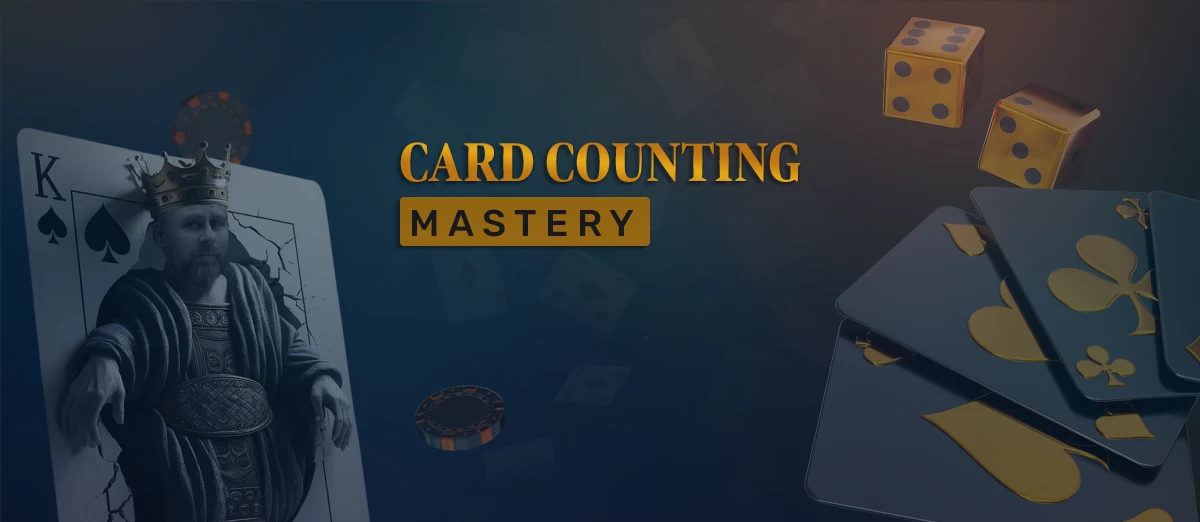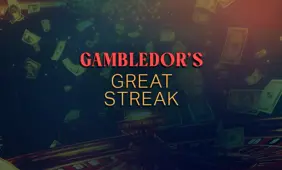R. Paul Wilson On: The Card Counter’s Playbook

If you're serious about legally beating casino games, then counting cards in blackjack is either already on your radar or somewhere in your rear-view mirror. We've explored various strategies before, but a recent conversation with one of the finest players in the world brought home a universal truth: the most common question posed to experts in any field often has the same, disappointingly simple answer.
I’m fortunate to have a circle of remarkably clever friends, each excelling in disciplines that often intersect around magic, sleight of hand, con games, and modern deception. Recently, at a dinner, one of these friends introduced us to a professional 21 player—a person who has achieved remarkable success in beating a variety of games, both online and in real life.
As always, I relished the opportunity to listen and observe as questions and ideas were exchanged and was immediately struck by the intelligence, curiosity, and charisma of our new acquaintance as he recounted his career, enriching the conversation with fascinating anecdotes and cautionary tales. Inevitably, when speaking with any true expert, the subject of card mastery comes up.
Skill, Dedication, and the Pursuit of Excellence
An entire industry has sprouted like mold on Western society, peddling easy answers or quick accomplishments through some gimmick or other. But the unvarnished truth is that to succeed at anything, you must confront the obstacles that stand between you and your goal. Counting cards is far from the easiest skill to master in a live game, especially for beginners. The principles may be straightforward to grasp, but the reality soon sets in: executing card counting skills accurately and discreetly for hours on end is far more demanding than one might initially imagine. This is precisely why so many people are drawn to systems promising easier paths or greater profits.
But let’s pause to acknowledge a fundamental truth about mastery in any discipline. I’ve been a magician since childhood, driven by a passion for dedicating countless hours to perfecting complex sleight of hand—not for any immediate reward, but simply to be better than I was the day before. I find solace in solitude, losing myself in old books or untangling new ideas that might one day make their way into my repertoire—though that is rarely the end goal when I delve into esoterica.
Most of my peers in this field share a similar disposition. Consider Steve Forte, perhaps the greatest living master of card and dice techniques, particularly those inspired by gaming scenarios. He recently published a two-volume opus, the culmination of a lifetime of study, showcasing methods that have astounded and baffled fellow enthusiasts, gamblers, and gaming professionals for decades. The influence of these books is profound, sparking a new generation of sleight of hand artists who are taking up the mantle and pushing the boundaries of what’s possible.
Recently, I had the privilege of meeting a young card magician who has developed his own distinct approach to card manipulation — a technique so unique and extraordinarily difficult that it leaves even the world’s foremost experts in awe. His seemingly effortless execution is the result of years of obsessive repetition, enabling him to perform the seemingly impossible with grace and precision before a live audience.
And therein lies the rub. Perfecting any skill—whether mental or physical—can take years. While raw talent may propel you further and faster, even the most naturally gifted will eventually face the moment when that skill must be tested under pressure. And that, my friends, is where things can quickly unravel.
Card Tricks and Counting Chaos
Anyone who has learned a skill intended for real-world performance knows that even the most well-honed techniques can become awkward and ineffective under the scrutiny of others or the pressure of live environments. It’s one thing to be a piano virtuoso in the privacy of your home; it’s quite another to perform before an audience. And I’d argue that interactive skills, such as magic or the art of card counting, become even more challenging when the timing, outcome, and countless distractions are dictated by others.
In magic, the solution is as clear-cut as it is in card counting. Magicians must learn to practice, rehearse, and perform—each stage presenting formidable challenges on the path to mastery, each with its own set of problems to overcome. This applies to everything from the most intricate sleight of hand to the seemingly simple, mechanical methods that are often—erroneously—marketed as "easy to do."
Sometimes the most automatic techniques can be exposed or botched when attempted without proper practice and rehearsal, even a dangerously high ego can trip you up. It’s during performance that all the preparation coalesces, as the magician gains the experience needed to navigate the myriad possible outcomes, questions, or unexpected hurdles.
Experience is the product of preparation, trial, and error. Whatever card counting system you adopt, hours must be devoted to mastering it—maintaining an accurate count, understanding your true count, and managing your spread. More complex systems might offer greater accuracy, but they also demand more time to perfect, ensuring that the mental work becomes seemingly automatic—at least until you’re at a live table.
Even online games can throw us off when external factors dictate timing, but once you’re at a real table, it takes time to adapt your newfound skills to that environment. You’re likely to get lost, make poor decisions, or realize you need to refine your technique to avoid drawing unwanted attention.
The Truth Behind Becoming a Card Counting Pro
The path to becoming a successful card counter mirrors the way to Carnegie Hall—practice, practice, practice. But you must also learn how to apply and conceal the fruits of that practice, or you’ll be fortunate to score a free drink before being asked to leave the table. Our dinner companion was a true master of advantage play, but whenever people inquired about his secret, his typical response is as disappointing as it is universally accurate: “You just need to put in the hours and do the work!”
Is it worth the effort? Consider the legendary golfer Gary Player, often associated with the following maxim: In his memoirs, he once recounted a moment when he sank a series of seemingly impossible putts. His opponent remarked on how incredibly lucky Player seemed to be. To this, the great golfer famously responded, "You know, the harder I practice, the luckier I get!"





Review this Blog
Leave a Comment
User Comments
comments for R. Paul Wilson On: The Card Counter’s Playbook